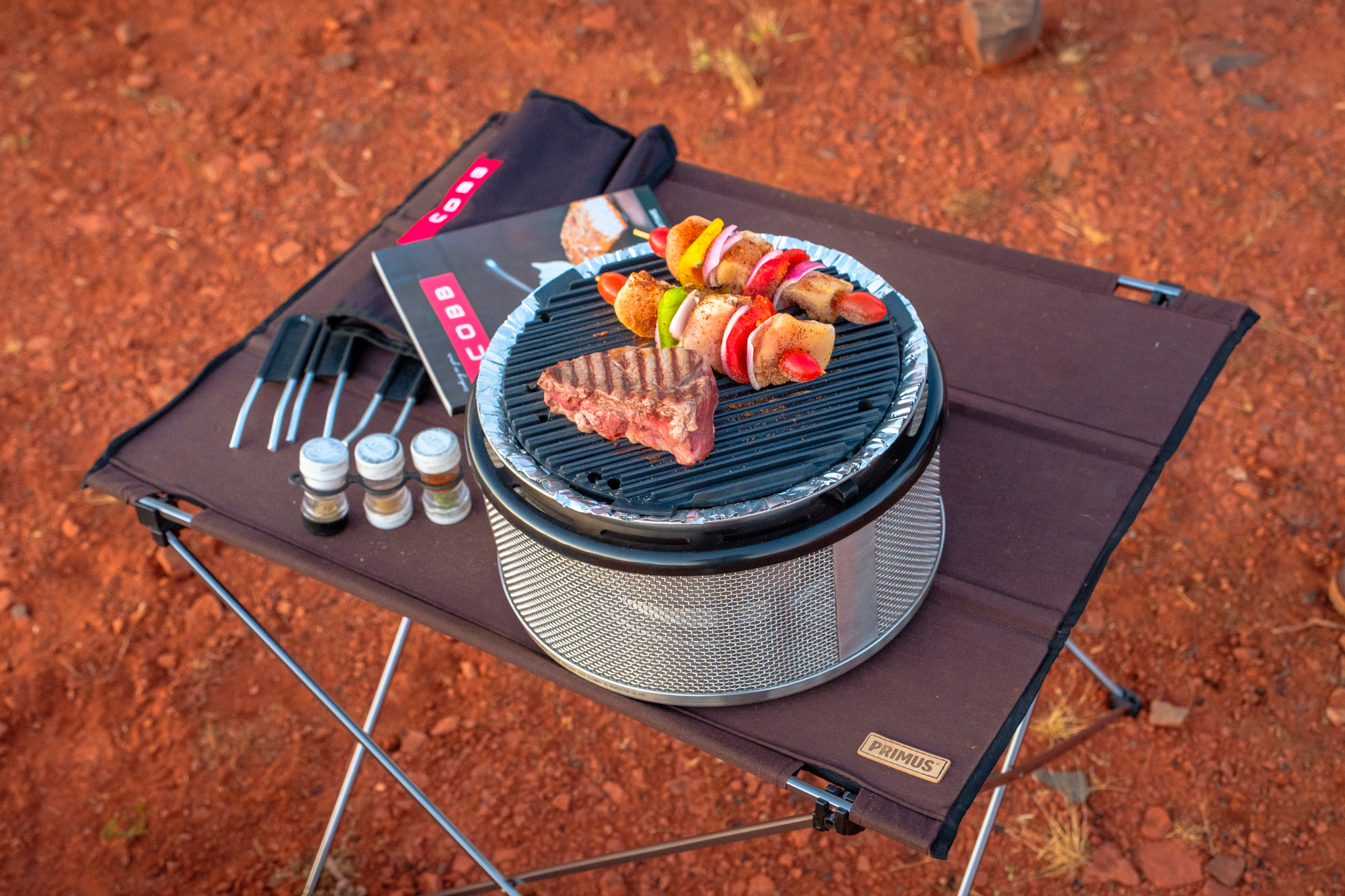Food is a universal language shared around the world. It’s a way to experience each other’s cultures, broaden one another’s horizons, and break down barriers between strangers, so it should come as no surprise that cooking and overlanding go together like chimichurri and steak. Of course, preparing that steak on a camp stove would be far from ideal, but so is carrying a grill in the first place. They’re bulky, messy, and if you’re not careful, risk causing a wildfire, which got us thinking there has to be something better right? Well, it turns out there is, which is why we’re going to take a look at the Cobb, a grill designed for a lifetime of use in the remote reaches of Africa.
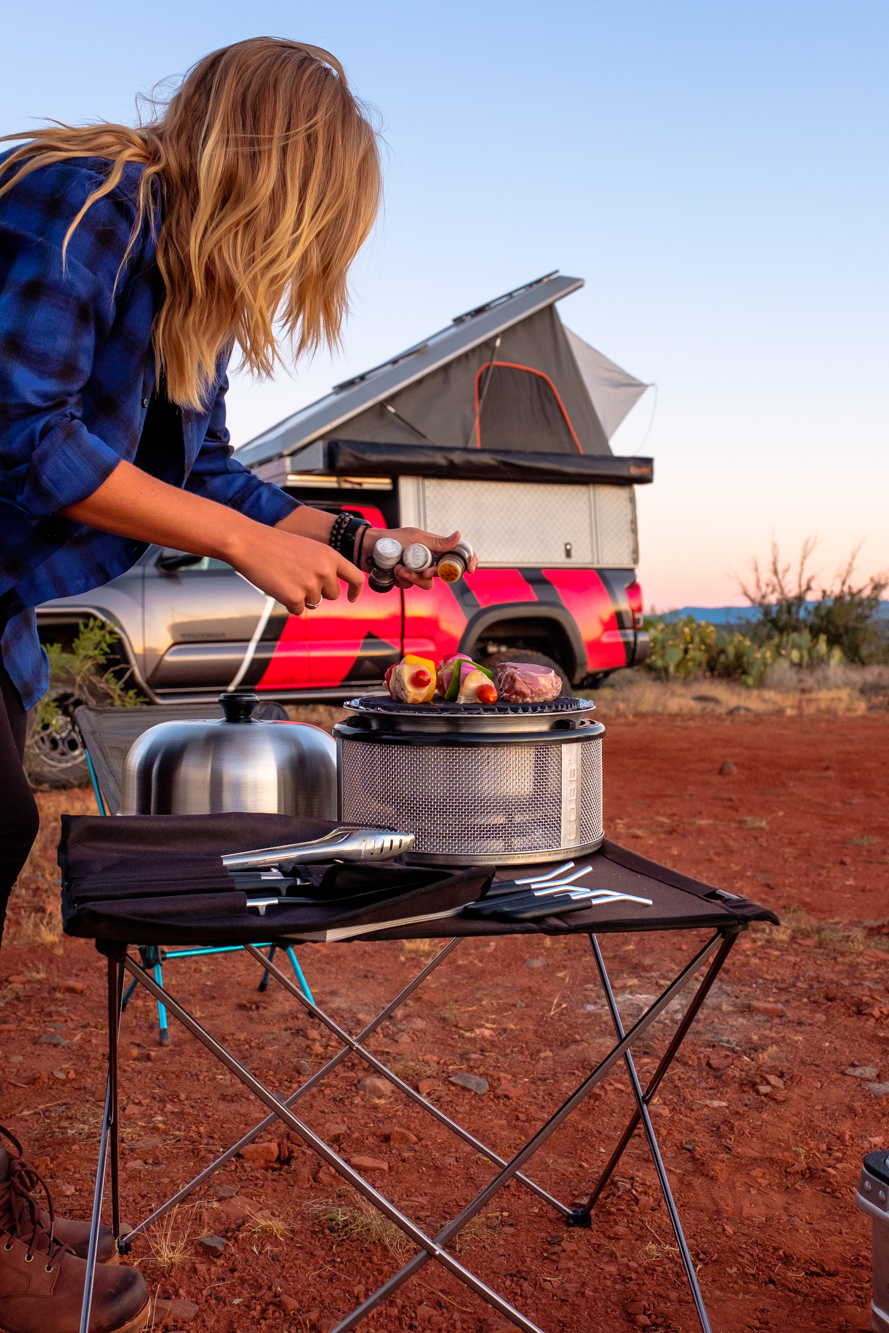
The Cobb at a Glance
The Cobb is a fantastic grill for overland travel. It will run for three hours off a handful of briquettes and can grill, bake, roast, smoke, boil, and warm food. It hardly requires any cleaning and is designed to ensure neither you nor the environment gets burned. If you’ve been searching for a charcoal grill to take camping or tailgating, the Cobb is definitely worth a look.
Pros
- Compact and lightweight
- Highly versatile
- Durable
- Wildfire safe
- Exterior stays cool to touch
- Requires very little fuel
Cons
- Small grilling surface area
- So many accessories it can become confusing
Price
Starts at $149
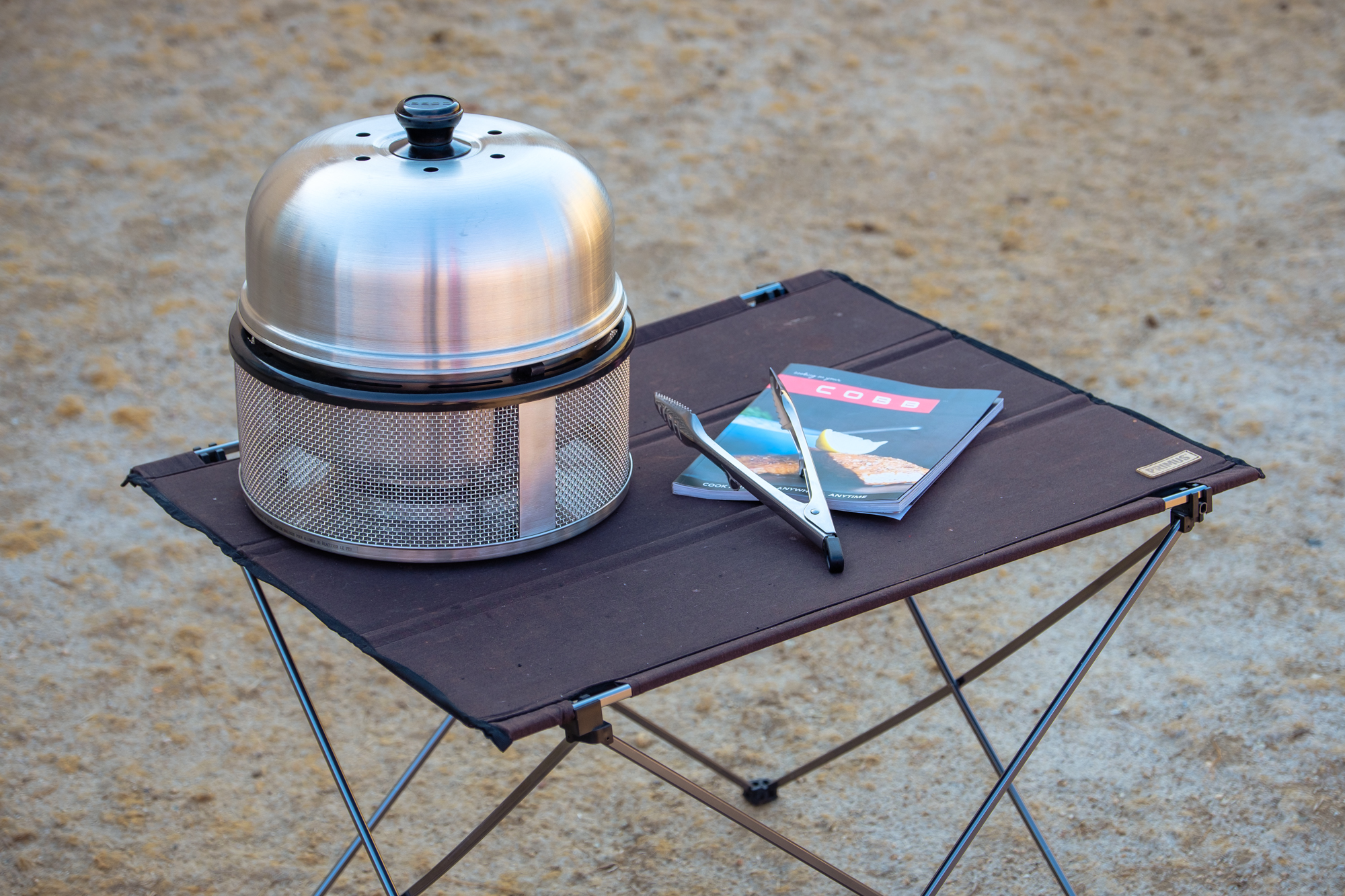
Impressions
The Cobb was born from a unique set of requirements for a cooking solution in the heart of Africa. Its designers needed something that worked without electricity, was lightweight, compact, and still durable enough to stand up to a lifetime of abuse in the bush. Families would need it to cook food in a variety of ways, stay cool to the touch, and virtually eliminate the risk of starting a wildfire. Oh, and on top of all that, it needed to operate on fuel sources commonly available in rural Africa. In other words, dry corn cobs. Thus the Cobb grill was born.
The production unit you see here is built almost entirely out of stainless steel with non-slip rubber trim to keep the grill from moving around on your table or rattling in your vehicle. It has no moving parts for durability and weighs as little as 8 pounds while measuring in at 12.5 inches wide and 14 inches tall, making it easy to tuck into the carry bag and toss in a vehicle. The internal structure is where this design really heats up though, pun intended.
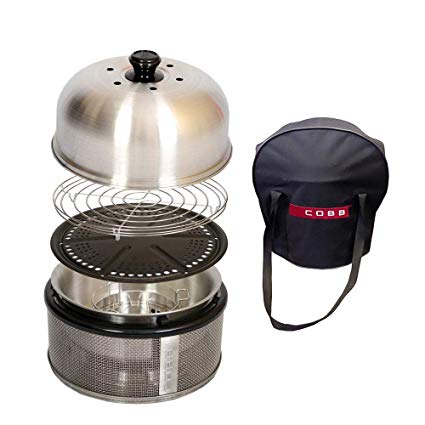
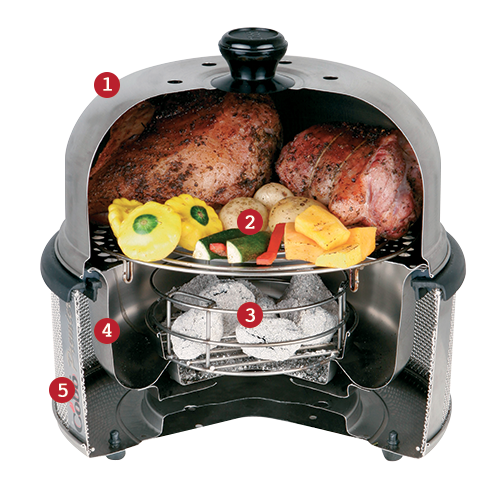
A charcoal basket sits in the middle of a two-part base, which is comprised of a stainless steel inner sleeve surrounded by an outer shell. The cooking grate sits on top and is covered by a vented lid. The combination circulates and retains heat to cook the meal like a convection oven instead of a standard grill, giving the Cobb the ability to also bake, boil, roast, and smoke just about anything you can fit inside.
The multi-part design is about more than just easy cooking, though; it’s about safety. Because the outer shell is isolated from the cooking portion, it stays cool to the touch and allows you to pick up and move the grill while it’s hot or set it on top of any camp table or soft surface without worry of burning it. This was a huge benefit in camp, as we often found ourselves needing to shift things around to gain space for food prep or wanting to move the grill out of the way to cool once we were done cooking.
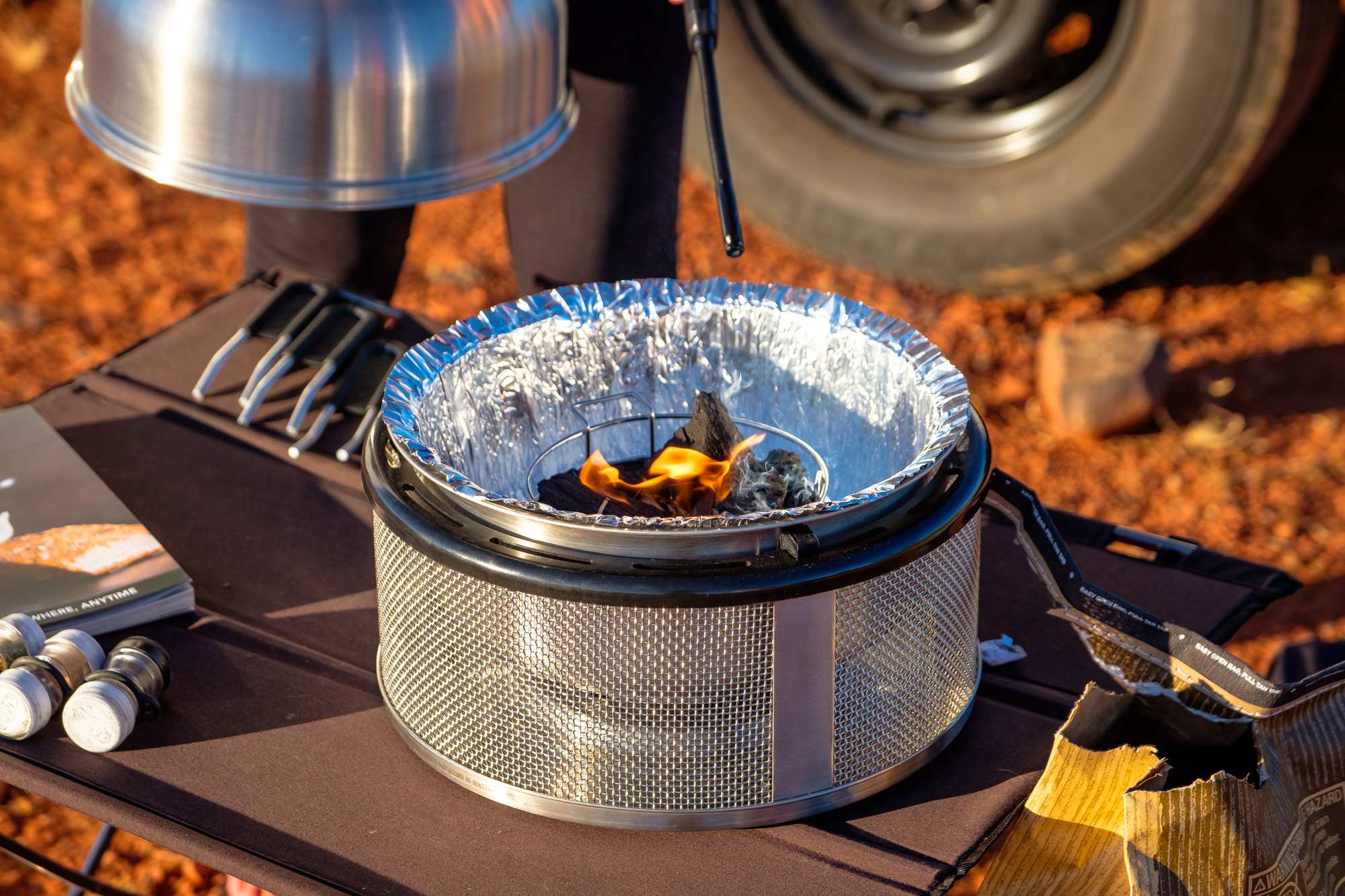
Then there’s the even bigger benefit of fire prevention. Because the charcoal basket is recessed inside the sleeve away from the wind, it prevents a big gust from whipping up sparks and starting a wildfire. As a secondary assist, the stainless steel sleeve serves as a moat beneath the grill which catches excess fat and juices before they can drip on the coals, thus eliminating flare-ups. This has the added benefits of reducing smoke, as well as making the grill extremely easy to clean. Speaking of cleaning, the Cobb is dishwasher safe, so you can feel free to use it throughout your camping trip and then just toss it in the wash when you get home—easy.
Cook times were impressive for how little fuel was used: up to three hours on just eight briquettes of charcoal. That was enough to cook several rounds of kabobs, steak, eggs, and bacon, and just about any other meal we devised for two to four people. However, because grilling space is limited to the 12-inch cook surface, large meals can be tricky. We ended up serving multiple courses instead of trying to prepare a full meal for four people all at once.
Another slight difficulty with the Cobb is the number of accessories you can use for different scenarios. While it can cook in just about any manner you could dream of, it requires various racks and grates to do so. There’s a handy cookbook which certainly helps, as well as information online, however, trying to sort out exactly what you’ll need can be a tad overwhelming at first. Fortunately, the COBB is highly versatile right out of the box, so you don’t really need any accessories to make it work. If you do want them though, their customer service is phenomenal and will help get everything sorted out in short order.
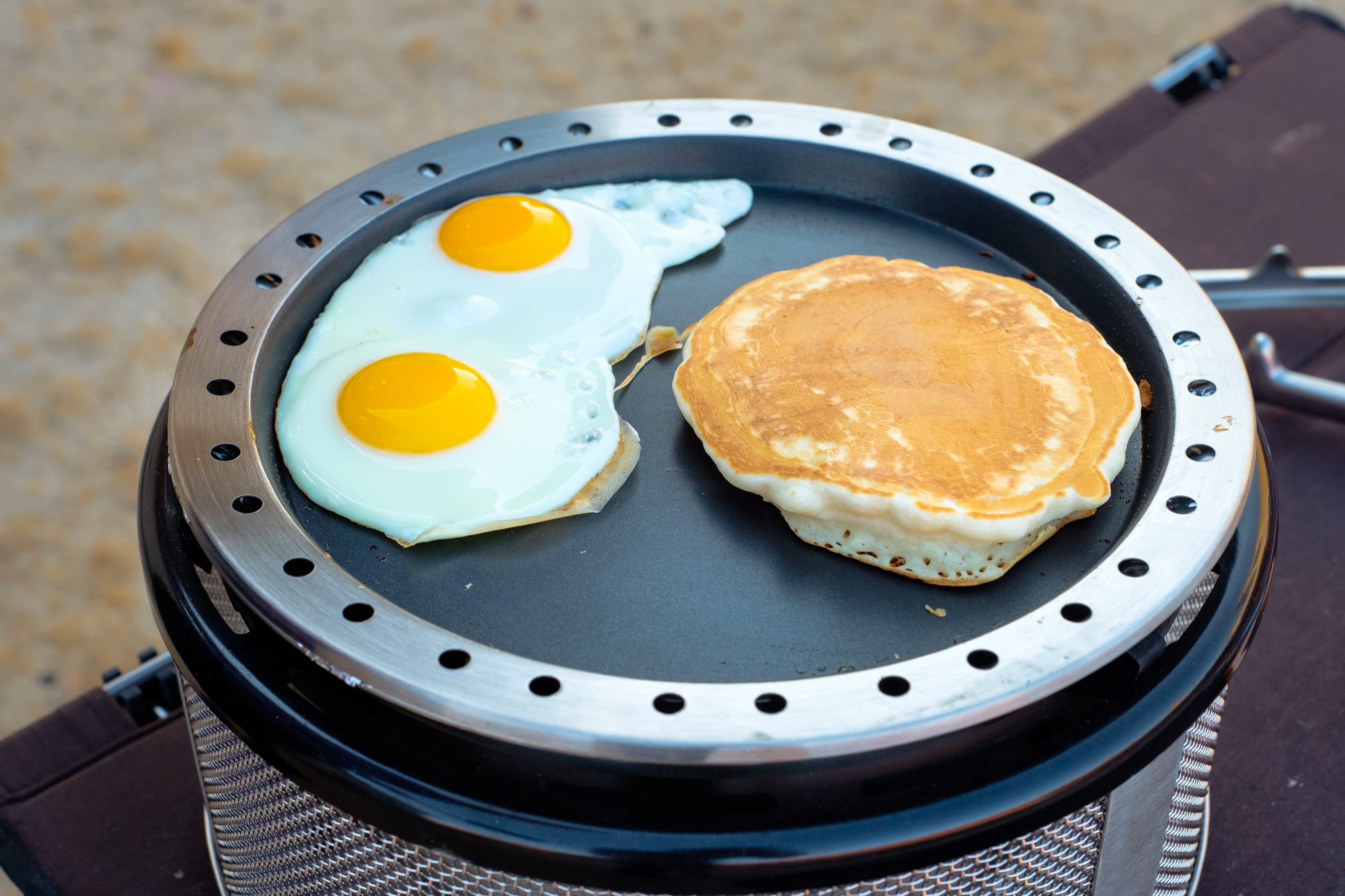
Overall, I have to say that the Cobb is one of the best charcoal grills I have used. It doesn’t make a mess of your vehicle, is easy to carry, cooks for ages on hardly any fuel, and seems to make everything you prepare on it taste better. Add in the fact that it reduces the chance of a wildfire, and I think it is a clear winner amongst backcountry grills.
For more information, visit the Cobb website here.


